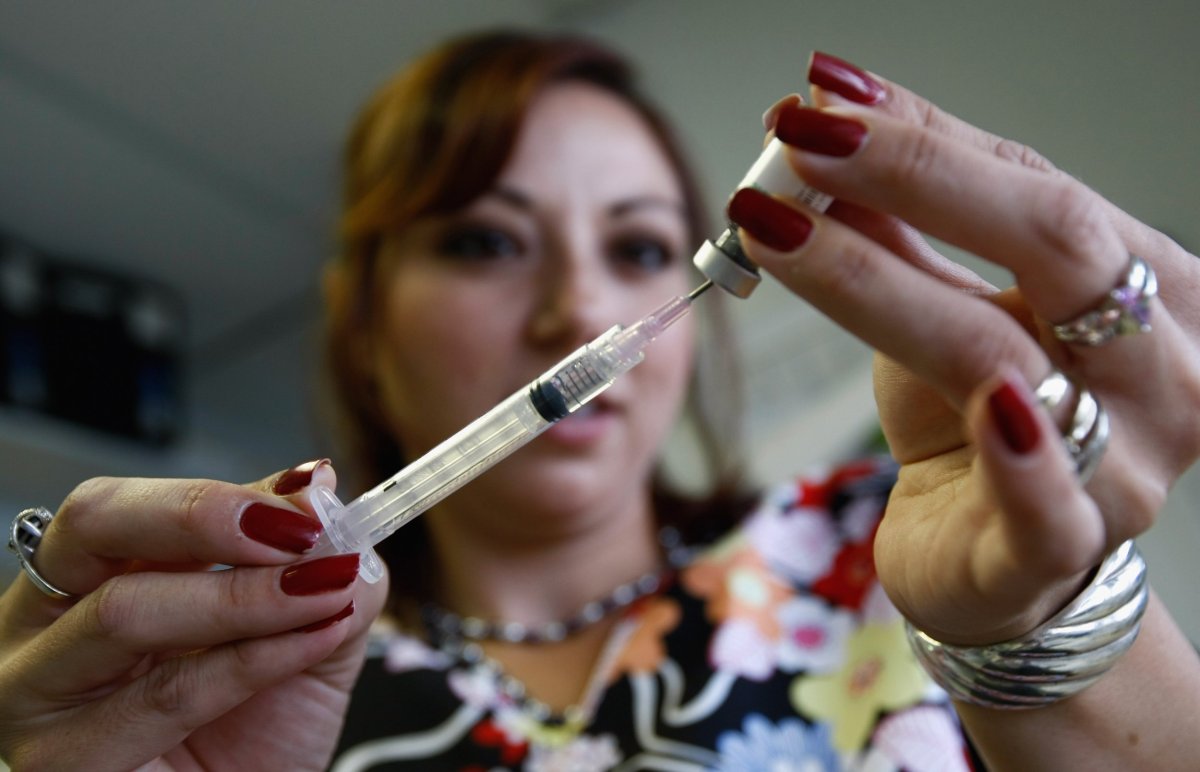Researchers have found yet more evidence that there is no link between the measles, mumps and rubella (MMR) vaccine and autism—despite what many anti-vaccine proponents continue to claim.
According to the results of a study published in the journal Annals of Internal Medicine, the MMR vaccine does not increase the risk of developing autism and does not trigger autism in susceptible children.
In 1998, discredited former British doctor Andrew Wakefield published a paper in the Lancet that proposed a link between the MMR vaccine and autism.
The paper was eventually withdrawn, and numerous studies have since debunked its conclusions. But the false idea that the MMR vaccine causes autism has remained stubbornly persistent, hindering vaccine uptake.
There is now growing concern among experts that increasing rates of vaccine hesitancy—the delay in acceptance or refusal of vaccines despite their availability—has paved the way for outbreaks of easily preventable but potentially dangerous diseases, such as measles, in certain parts of the U.S. and Europe.
The World Health Organization recently listed vaccine hesitancy as one of its top 10 threats to global health in 2019.
For the latest research, a team of scientists from the Statens Serum Institut in Denmark examined data from more than 600,000 Danish children to see if there were any links between MMR and autism in what is the largest study of its kind addressing this issue. The team had previously conducted a similar study in 2002 looking at the same question.
"We did a similar large study in 2002," Anders Peter Hviid, an author of the paper, told Newsweek. "However, the idea that vaccines cause autism is still around despite our original and other well-conducted studies. Parents still encounter these claims on social media, by politicians, by celebrities, etc."
"We felt that it was time to revisit the link in a larger cohort with more follow-up, which also allowed for more comprehensive analyses of different claims such as the idea that MMR causes autism in susceptible children," he said. "The perceived link has been around for 20 years. There is no doubt that it has been damaging to childhood immunization programs in many countries. Today we are seeing the results with more and more frequent measles outbreaks."
The researchers identified that of the 657,461 children born between 2009 and 2010, about 6,517 were diagnosed with autism over a 10-year follow-up period.
Comparing MMR-vaccinated children with MMR-unvaccinated children, the team found that the vaccine did not increase the risk of autism, even in children who have an increased likelihood of developing the condition—such as those with autistic siblings. Furthermore, they found that there was no increased risk during specified time periods after vaccination, addressing some of the concerns raised over previous studies.
The latest findings have been welcomed by scientists, even though they largely confirm what was already known.
"The carefully analyzed results add to an already long list of studies that debunked faulty ideas about vaccinations," James Donnelly from Southern Cross University, who was not involved in the study, said in a statement. "This study is another reminder that we need to guard against biases informed by erroneous information when making important decisions about the causes and management of childhood disorders. To ignore these findings would be irresponsible in my opinion and may put children at increased risk as believing dangerous myths instead leads to poor health care choices."
Meanwhile, Katie Flanagan from the University of Tasmania, who was also not involved in the study, said in a statement: "All studies since the fraudulent paper of Andrew Wakefield published in the Lancet in 1998 have failed to find a link between MMR vaccination and autism. The paper was subsequently withdrawn but the damage had been done. An increase in vaccine hesitancy and refusal since then has been associated with repeated outbreaks of measles in industrialized countries in recent years."
"Since measles is potentially lethal and highly infectious the ideal scenario would be to eradicate it from the world altogether, as was achieved with smallpox through vaccination," she said. "However, measles eradication requires more than 95 percent of people need to be vaccinated, which will be hard to achieve while the mythical link between MMR and autism persists."
Despite agreement over the findings, some scientists have questioned the value of conducting such studies.
"Although it is fantastic to see another high-quality study refute the myth of an autism and MMR vaccine link, it is disappointing that substantial research efforts, time and funds have to continue to be directed toward disproving something that we already know to be incorrect, rather than investigating more accurate causes of autism," said Hannah Kirk from Monash University in a statement.

Uncommon Knowledge
Newsweek is committed to challenging conventional wisdom and finding connections in the search for common ground.
Newsweek is committed to challenging conventional wisdom and finding connections in the search for common ground.
About the writer
Aristos is a Newsweek science reporter with the London, U.K., bureau. He reports on science and health topics, including; animal, ... Read more
To read how Newsweek uses AI as a newsroom tool, Click here.






